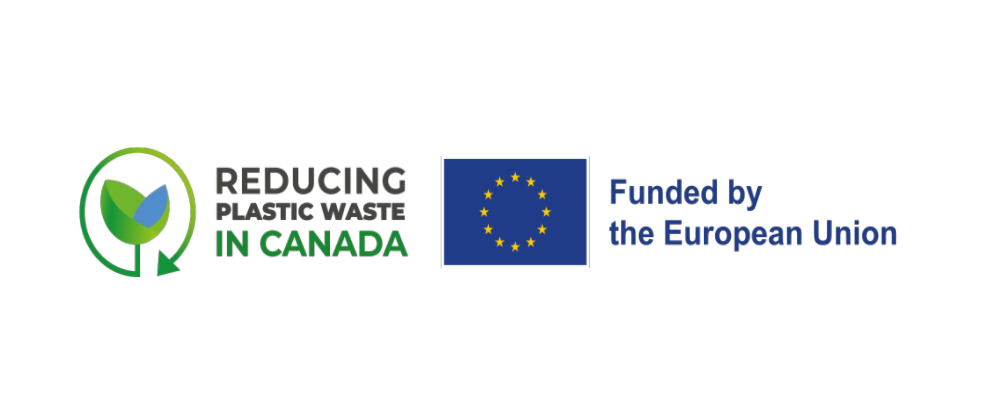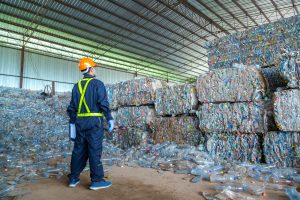- Policy
- Government
- Facts & Stats
- Plastic Pollution
- National
- International
Story 8: Circular public procurement: a Framework for Cities Developed by the Ellan MacArthur Foundation
The Ellen MacArthur Foundation (EMF) has published an online framework for municipal governments to follow as a step-by-step guide to developing a circular procurement approach for their organization. This framework was published in the May 2022 newsletter on greening procurement by the European Commission.
The EMF online guidance provides an overarching framework adaptable to the local context and the realities of each city. It maps a city’s journey from deciding to adopt a more circular approach to piloting circular procurement projects, scaling and mainstreaming.
Circular public procurement is a powerful tool that city governments can use to shape the transition towards a circular economy. With public procurement accounting for 15-20% of global GDP and sub-national governments being responsible for almost 50% of procurement decisions, city governments have an important role in shaping local circular economies. Circular economy principles and criteria can be applied to purchase various products and services such as buildings, furniture, food, and packaging among others. By focusing on the desired outcomes and benefits, rather than the products needed, city governments can leverage their purchasing power to build thriving, liveable, and resilient cities. For example, instead of procuring vehicle fleets, city governments can procure access to more sustainable mobility solutions that reduce congestion and air pollution. Through circular procurement, city governments can reconsider what they buy and how they buy to achieve the best desired outcomes.
The EMF framework is presented here.
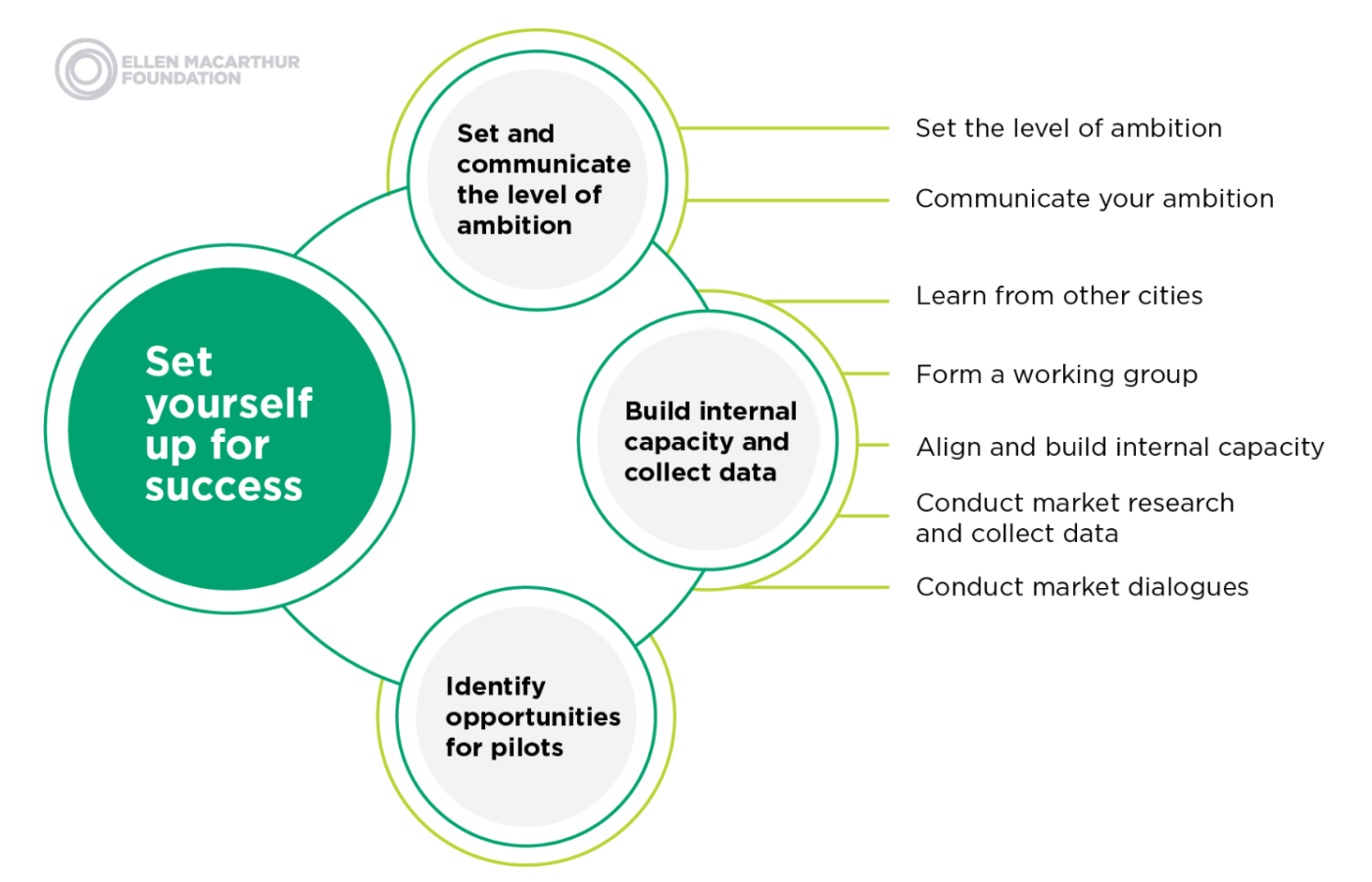
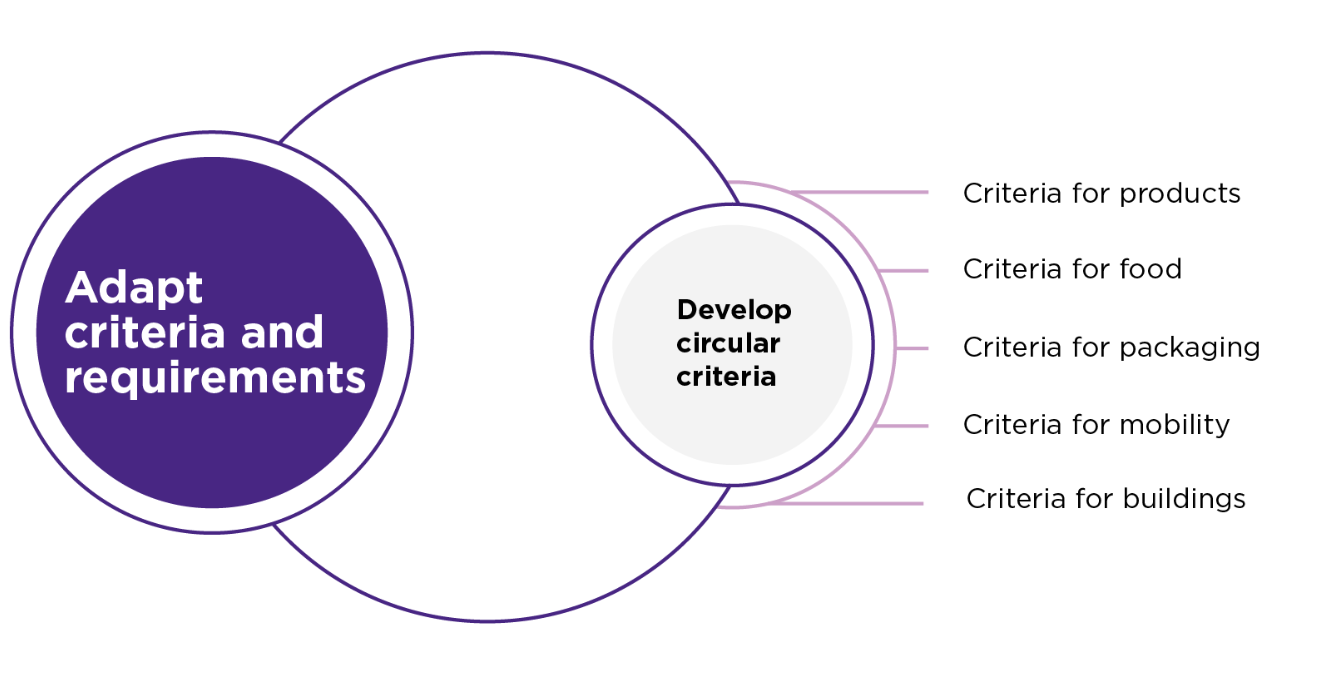
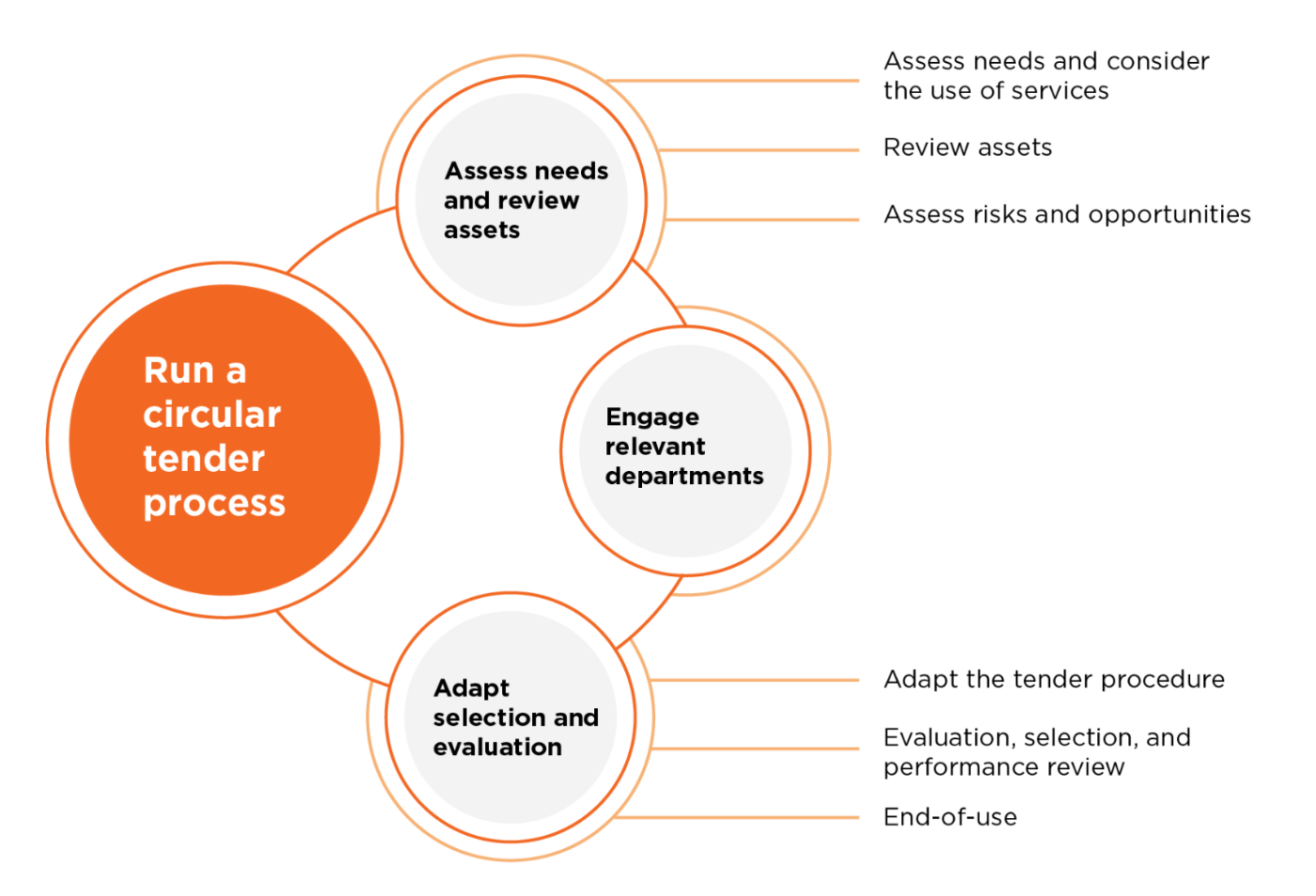
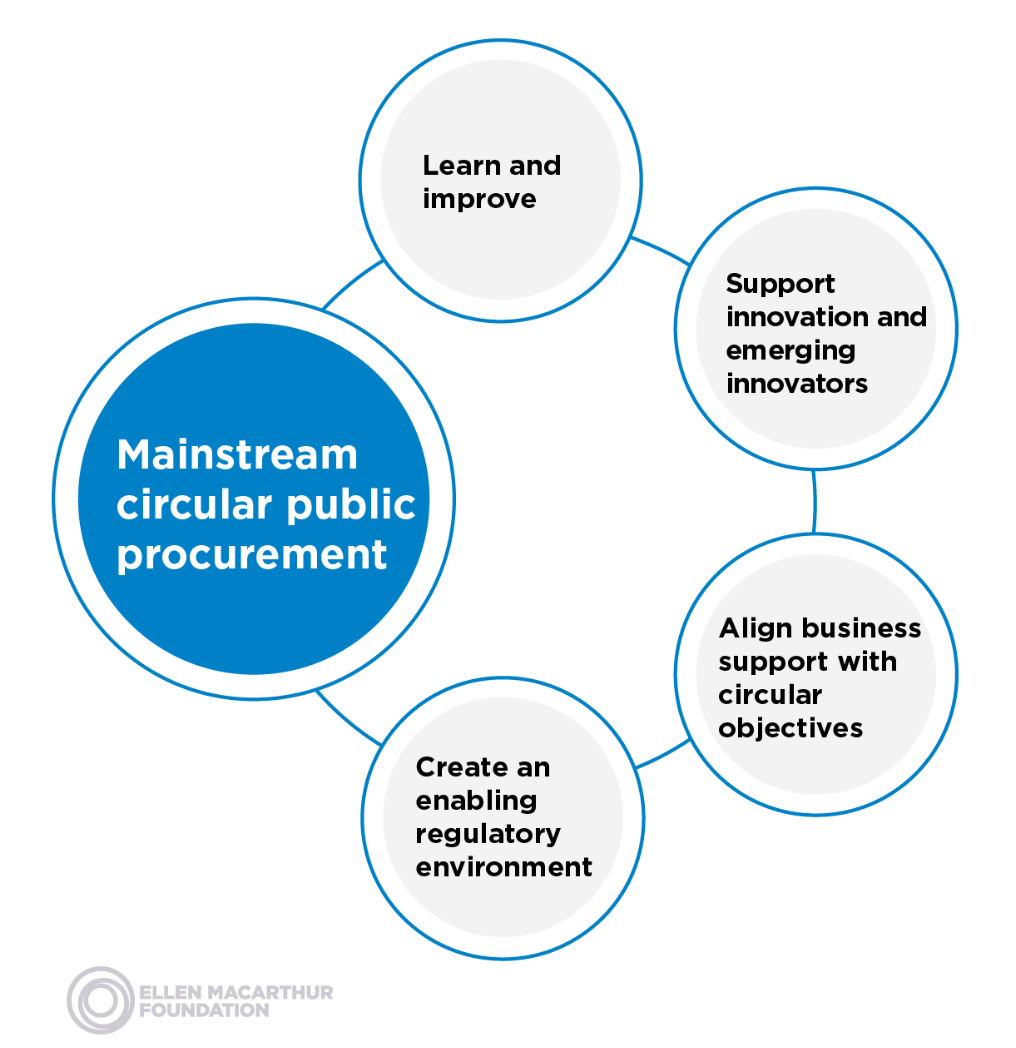
URLs
https://emf.gitbook.io/circular-procurement-for-cities/framework-overview
https://emf.gitbook.io/circular-procurement-for-cities/
The European Union (EU) project on Reducing Plastic Waste in Canada
